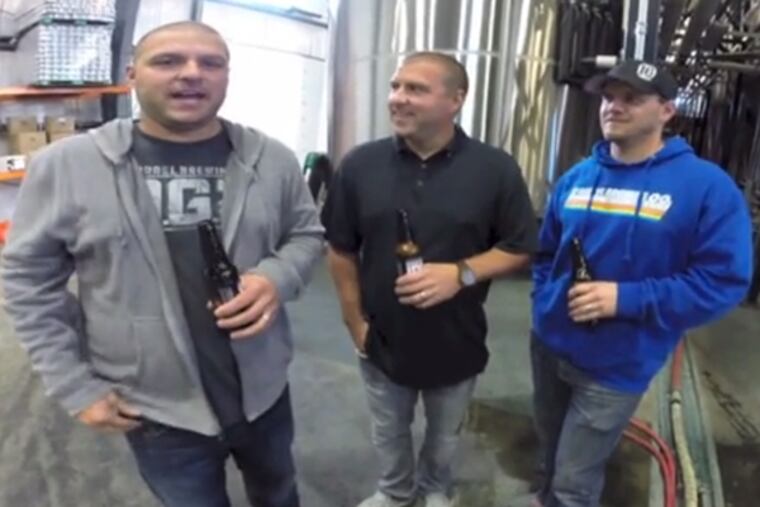Are we seeing the end of real craft brewing?
Looking back on the takeover of a tiny Oregon brewery last week by Anheuser-Busch InBev, some years from now we may remember it as a turning point.

LOOKING BACK on the takeover of a tiny Oregon brewery last week by Anheuser-Busch InBev, some years from now we may remember it as a turning point.
Or maybe we won't remember it at all.
But right now, it feels like the Day the Music Died - the day when craft brewing took the inevitable step from the adolescent innocence of selfless idealism to the maturity of just another bottom-line business.
The moment came, fittingly enough, with the posting of an Internet video showing the owners of 10 Barrel Brewing, in Bend, Ore., gleefully announcing that they had sold their 8-year-old brewery to ABI.
This was not the first small brewery to be gobbled up by the international conglomerate. ABI purchased Goose Island Brewery in 2011, and Blue Point Brewing Co. last February.
While there was some passing protest about those sales among the breweries' fans, it hardly matched the outrage sparked by the 10 Barrel purchase. On Facebook and Twitter, the owners were called turncoats who'd "sold out" to the "Great Beer Satan."
No one voiced the outrage more sharply than Seattle-area beer blogger Steve Body, who charged, "If you care about craft brewing - about the community of people, not corporations and not abstract legions of faceless laborers - then you do NOT, under any circumstances and for any amount of money, sell your craft brewery to a company whose stated objective is to bring about the ruin of that community."
I asked Body why the sale had struck a nerve.
"Well, Blue Point is in New York, and Goose Island is in Chicago. Big cities," he said. "This one is in Bend - it strikes us as creeping evil in the heartland."
Indeed, you could make a case that Bend - or, at least, the Pacific Northwest - is where the craft-brewing sector's true, vibrant heart began beating. Although microbrewing was born in California, it was in Washington and Oregon that it took on the aura of a counter-cultural lifestyle.
It was in the woodlands of the Willamette National Forest, along the shores of the Columbia River and in the shadow of Mount Olympus that microbrewing developed its character as an honest, principled craft manifested by environmental consciousness, workplace fairness and social justice.
Yes, these were businesses trying to earn a buck, but profits were not their driving force.
Even if you didn't buy into that hippie nonsense, the guiding ethos of craft beer as a blessed alternative to the blandness of Big Beer nonetheless built the burgeoning industry. Craft beer thrived specifically because it was the anti-BudMillerCoors.
The lines have blurred in recent years.
MillerCoors, through its 10th and Blake unit, brews everything from fruit beer to India pale ale. ABI is on the road to becoming the world's largest producer of barrel-aged ales - those high-alcohol, bourbon-like stouts that get the highest ratings from critics and online rating sites.
It's no wonder that, as some railed about the 10 Barrel sale, many more shrugged and said "Who cares? Who cares who makes my beer as long as it tastes good?"
I'm tempted to play the Hitler card, but I won't - and not just because more than a few of my favorite German breweries have a shady back story.
No, it's pretty clear that many Americans don't much care who makes our everyday products (see Exxon Mobil, Monsanto, Nestle). To many, it's just business. When I asked visitors to JoeSixpack.net about their opinion of the sale, a solid 40 percent said 10 Barrel shouldn't be blamed for making a buck.
"This has been the worst kind of revelation, to see that so few people care about it," Body said. "The thing that drew me to craft brewing in the first place, in the late '80s, was the sense of community. In the last 40 years, the American craft-brewing scene has been blessedly free of a--holes.
"But now they're sneaking in."
There are still another 3,000 independent breweries to choose from, of course. But for Body and others, that's not the point.
For when we think of craft beer as just another business, it's not the aroma of malt and hops we're savoring. That's the stale smell of money.